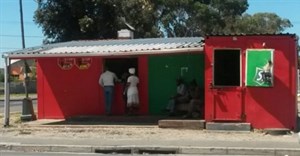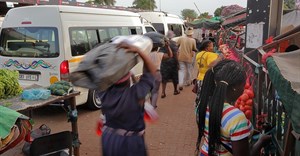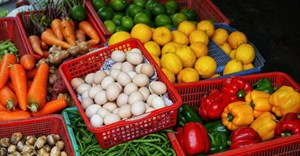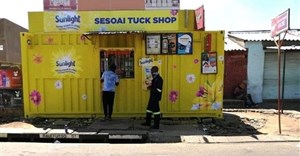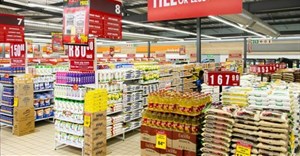Trending




 Does anyone know what content is any more?Justine Drake
Does anyone know what content is any more?Justine Drake
Elections 2024
Jobs
- General Sales Worker Hazyview
- Temporary Administrator George
- Retail Sales Consultant Hazyview
- Brand Ambassador Kabokweni
- Sales Associate Nelspruit
- Event Promoter Malelane
- Retail Sales Consultant Nelspruit
- Junior Graphic Designer Umhlanga
- Account Executive Umhlanga
- Warehouse Team Leader George
SA's lucrative township food economy still underserved
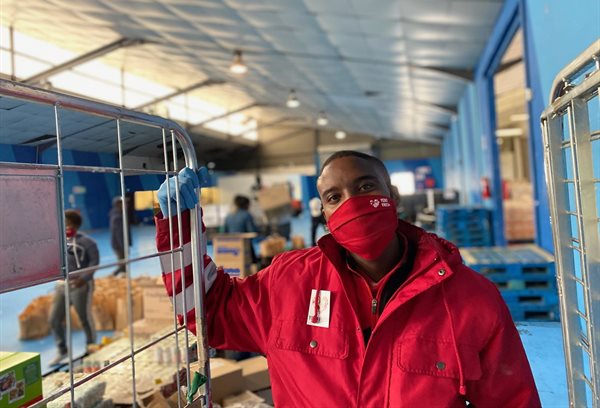
Though Trade Intelligence estimates the SA FMCG market to be worth approximately R563bn, the estimated value for ‘informal retail’ remains a subject of ongoing debate and varies significantly according to the various sources. However, it is estimated to be at least R158bn – a sizable chunk of the total market.
Some corporate retailers opt for smaller store formats in townships, which may be counterintuitive to the way the township food economy is run. There are independent retailers whose businesses stand to be threatened by this format, and thus smaller stores cannot be adopted into every area. Instead, retailers should look at ways to collaborate with the existing food economy, in order to create a sustainable and profitable environment.
Many have regarded the township economy as mainly informal traders operating purely for sustenance or survival, which has been proven not to be the case. And while many large food retailers seem averse to expansion in these areas, innovative e-tailers are seeing the investment potential and are growing rapidly.
Jessica Boonstra, founder of online retailer Yebo Fresh, which began its business delivering groceries to township communities in Cape Town, believes that the value of the township economy extends beyond its financial potential. “For me the true value, besides monetary, is that the townships harbour the vast majority of South Africa’s workforce and its youth, and with that our future.”
Hyper-local approach
Through its growth from servicing a few townships in the Cape area, to anywhere within a 40km radius of the Cape Town CBD, Yebo Fresh has invested in local communities by scouting talent from the townships in which they operate.
Yebo Fresh adopted this approach by providing groceries and household goods not only to private homes, but to businesses and other organisations in township areas too. It serves to not only make the lives of everyday shoppers more convenient, but improves the operations of independent traders too. Through delivering items in bulk that these businesses sell, it eliminates the costly and time-consuming activity of traveling to wholesalers to source the items they need.
It is perhaps this hyper-local approach that has secured success for the company, as it has been mindful to grow its business along with the communities it serves. This is highlighted in the Trade Intelligence report, which specifies that suppliers who “engage with, invest in and secure the supply chain into informal retail will reap the returns of that investment”.
Responding to customer needs
By accurately studying the market, larger retailers and delivery services can find a successful balance if they choose to invest in townships, but cannot adopt a copy-and-paste approach to the areas they operate in. A thorough understanding of what shoppers’ demands are is crucial to determining the success of the investment.
A fitting example of understanding the demands of customers, is the debate on why food delivery giants like Mr D and UberEats do not operate in township areas. According to a Business Insider article, this is due to lack of demand. While this may be valid to some extent, the reality is that out-of-home eating is huge in townships, and forms a large part of people’s food expenditure – from a quick vetkoek on the way to the taxi to a full shisanyama.
Although they may not always be classified as restaurants as such, readily-cooked options are abundant and there is a rich culture of township fast-food classics. Delft, a Cape Town township, has around 200,000 residents and nearly 150 fast-food outlets, almost as many as there are spaza shops, proving that the demand is definitely there.
When asked if she foresees large retailers improving their delivery to townships anytime soon, Boonstra predicts that it may well happen in the near future.
“After a slow start, we now see online retail taking off at lightning speed throughout South Africa. As usual, the upper market often takes the lead, but more and more players large and small are starting to realise that the township market is too big an opportunity to ignore.
"I predict that most food retailers will aim to get some kind of online service going in the townships within the next three years, most likely via a partner that has already built a strong capability to deliver in this specific type of environment, like ourselves," Boonstra concludes.





